1 CPU處理性能瓶頸-散熱技術
溫度過高會導致 CPU 損壞。熱來源→晶體管運算,晶體管密度?,速度?
發熱:目前 intel i7-965 已超過130瓦,電子設備的失效 55%是由于過熱引起。
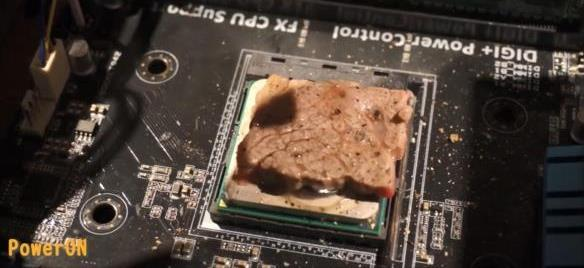
intel 在 其技術論壇中提及,由于線寬進人納米尺度時,其漏電流與散熱問題遲遲無法獲得一個妥善的解決方案 , 因此暫時放棄開發更高主頻率的 CPU,而轉向發展雙核心甚至多核心 CPU。 即使如此,散熱問題也只是暫時得到緩解 ,單個 CPU 的發熱量仍會持續增加,散熱面臨挑戰更大。
本技術可在CPU核心硅芯片表面直接低溫金屬化,焊接,優點如下:
1.不損壞CPU:室溫下金屬化(20-50℃),不損壞CPU內部電路,功能
2.導熱能力顯著提升:焊接導熱,銅熱系數 (200-400Wm.k)遠大于普通導熱硅脂導熱系數(1-2Wm.k),導熱能力顯著提升。
3.體積小,電路板=散熱片,無噪音,無灰塵,加工成本低
圖中截面可以看出,焊錫層與金屬化銅層,硅芯片層之間結合良好,芯片產生的熱量可以迅速傳導到焊錫層,顯著降低芯片工作溫度。
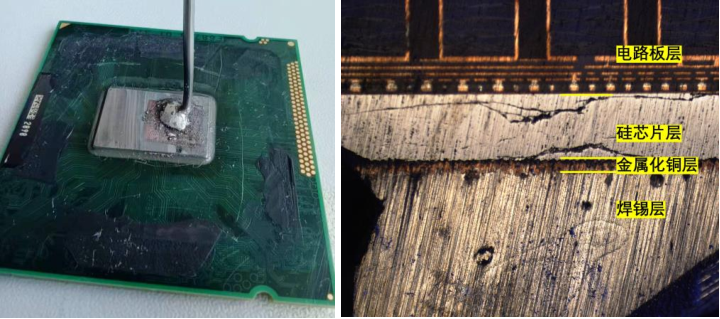
2 CPU處理性能瓶頸-未來趨勢
2020年9月Nature 發表一篇關于熱管理的文章,明確指出,一體化,集成化的散熱思想為未來熱管理的趨勢“Substantial research efforts have focused on improving the thermal path between the hotspot and the coolant. However, heat extraction capability is fundamentally limited by the thermal resistance between the semiconductor die and packaging”.
文章主要內容:將發熱芯片內部刻蝕多個微孔道,然后在其中流通冷卻液,將芯片產生的熱量迅速帶走,達到快速冷卻的目的,其實質是將散熱片與發熱芯片集成在一起的冷卻結構。
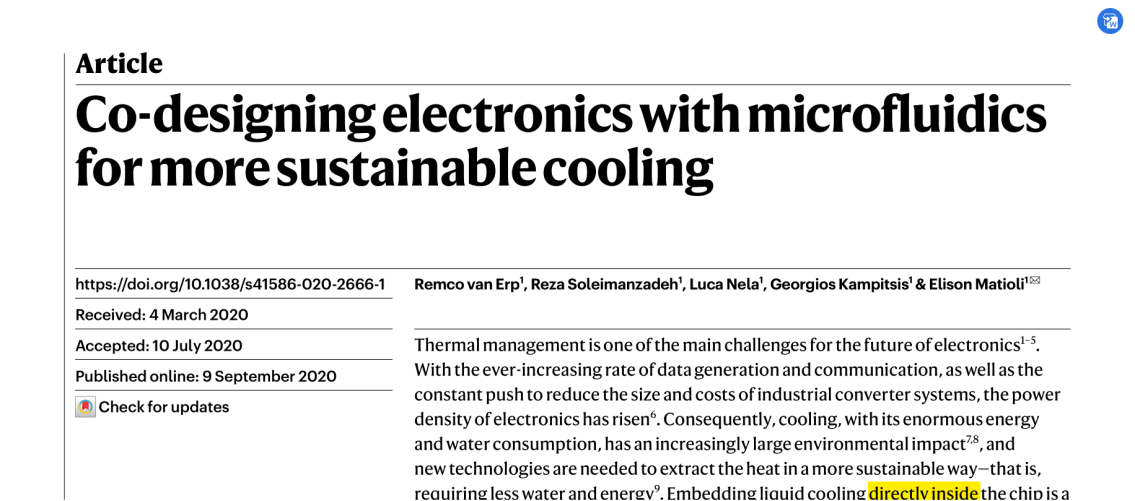
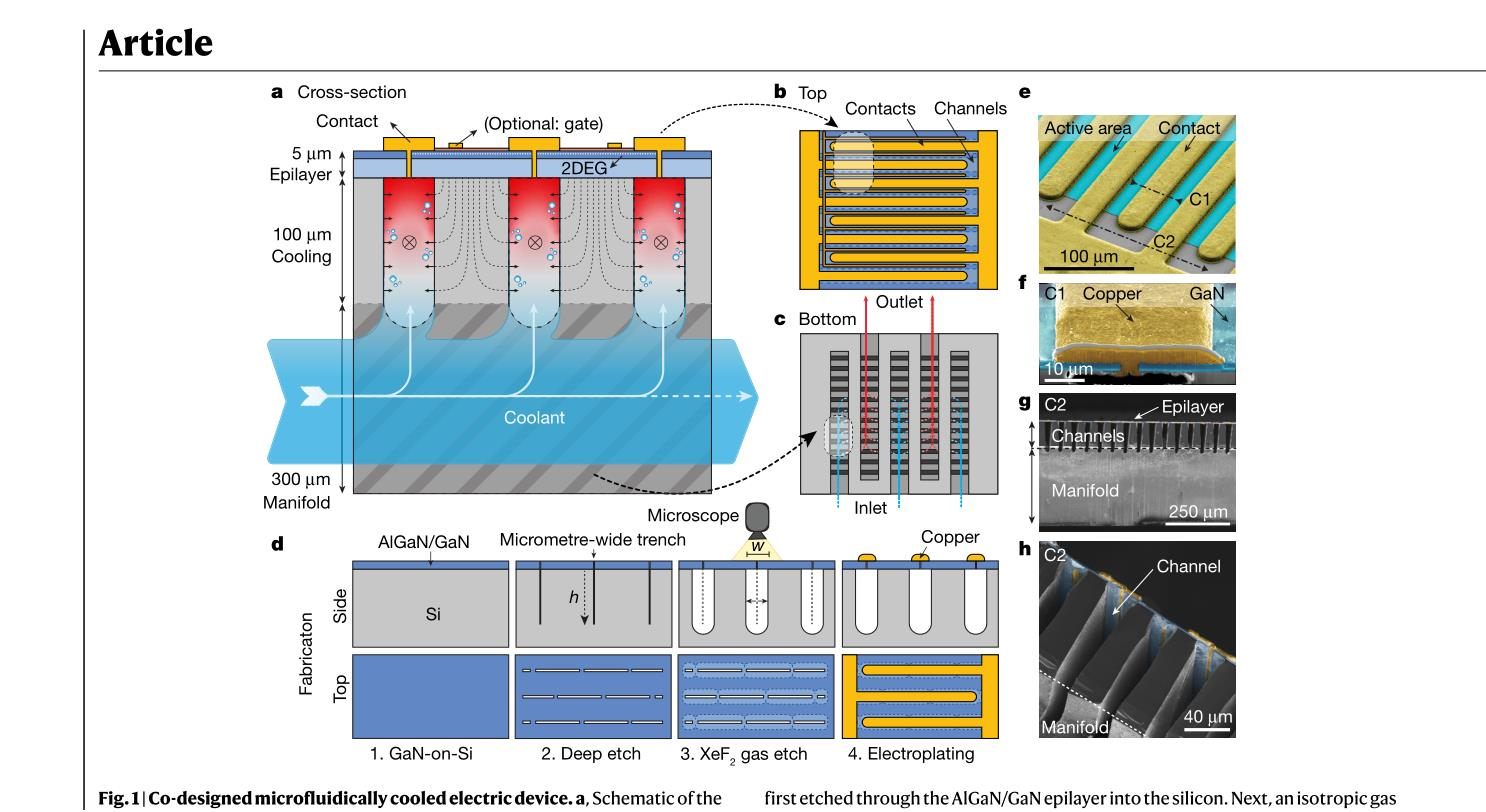
3 CPU處理性能瓶頸-結構與應用
如圖所示:圖a為散熱示意圖,熱量由處理器die產生,經金屬層-焊接層直接傳導到熱沉,中間沒有低導熱材料,顯著提高了其導熱能力,圖b為CPU截面光學顯微圖片,各層接觸緊密,降低熱阻,圖c,d為CPU直接焊接到筆記本熱沉圖片,圖e為將焊接后的CPU安裝到筆記本電腦中直接運行應用。
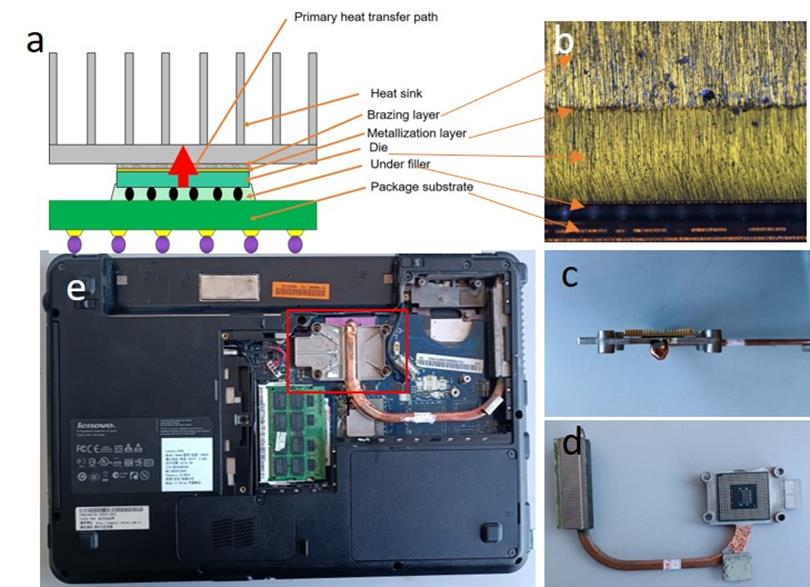
4 CPU處理性能瓶頸-散熱測試
圖為魯大師溫度壓力測試結果,二者均無風扇降溫圖a為焊接后的CPU溫度壓力測試結果,圖b為普通導熱硅脂升溫曲線,二者對比之下,使用本技術的CPU焊接散熱效果明顯優于市售的導熱硅脂(導熱系數3-6W/ms), 使用本技術的筆記本經過200s左右達到報警溫度(83℃),而相同條件下使用市售導熱硅脂的筆記本則用60s左右達到同樣報警溫度。
充分說明了本技術在處理散熱領域強大的應用前景,本技術還可以應用于手機散熱,內存散熱,顯卡散熱,服務器散熱等處理散熱領域。
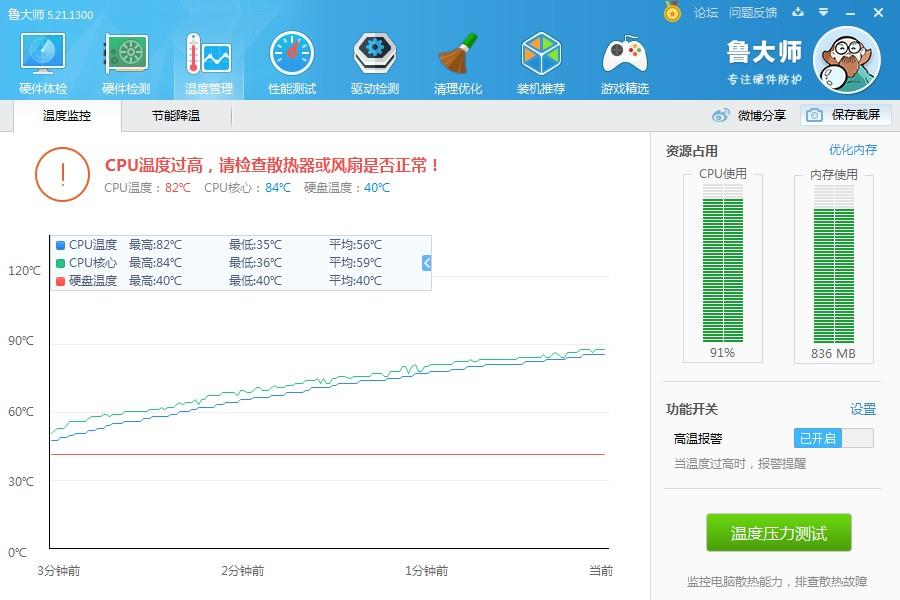
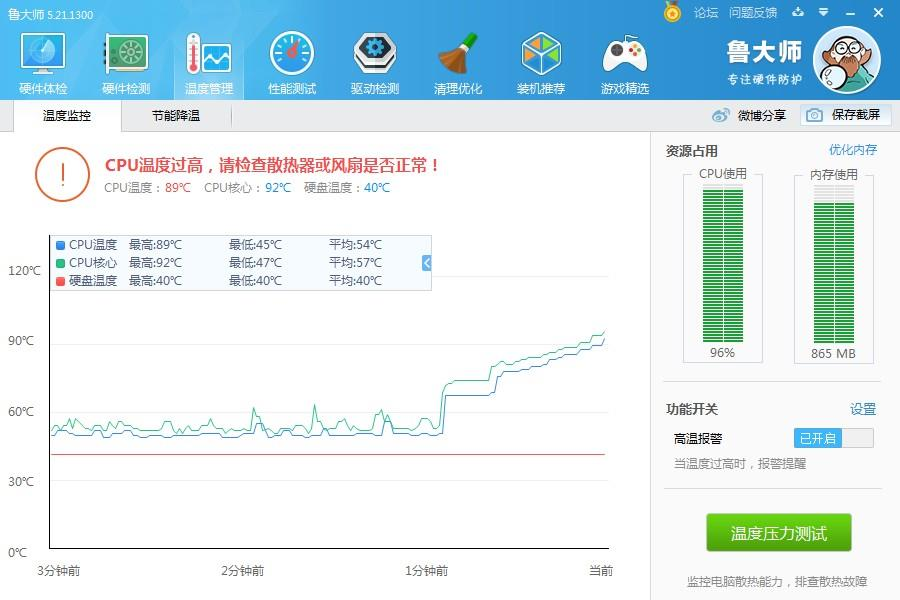
5 CPU處理性能瓶頸-難度挑戰
三個問題
?降低熱阻,高效散熱
?低溫金屬化,焊接,防止燒毀CPU
?熱失配問題
Due to imperfections in surface topography, a thermal interface material (TIM1) is typically used to reduce the contact resistance between silicon die and lid, to fill the gaps between the two imperfect surfaces. Under high magnification, even polished surfaces exhibit surface roughness sufficient for disruption of heat flow across the contacting interfaces.
Polymer based materials are commonly used as TIM1 for heat conduction across the interface. Polymer TIM comprises of conductive filler particles in a polymer matrix. Since most polymer matrix has very poor thermal conductivity, the heat conduction is mainly through the intimate contact between the filler particles,Therefore, it is easy to understand that why a 100% metal or solder TIM has much higher thermal conductivity than a polymer base TIM.
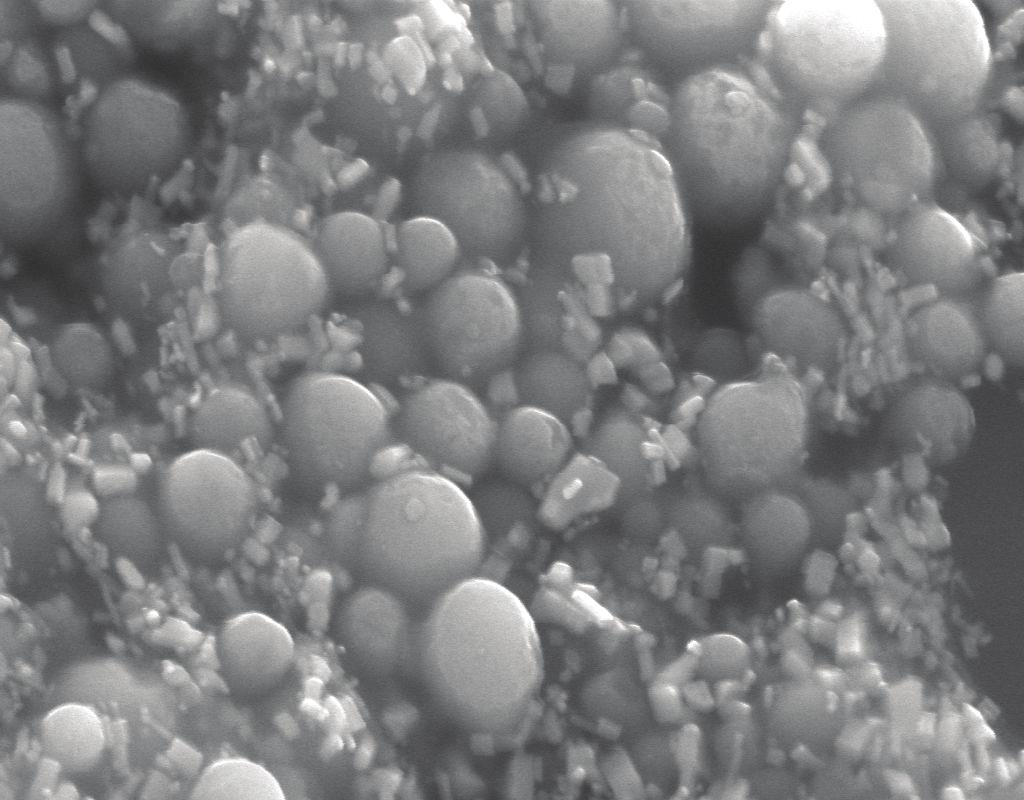
We present a welding integrated cooling structure combining heat sink and a single-crystalline silicon CPU die, produced with the need for low room temperature CPU metallization firstly and welding to the heat sink subsequently.

The layer has to absorb strain resulting from the mismatch of coefficients of thermal expansion (CTE) of the die, substrate and the integrated heat sink during temperature cycling. Figure a and b is microstructure of metallization surface , figure c is the cross-section between silicon die and metallization layer, the porous structure may release the thermal strain during temperature cycling.

6 CPU處理性能瓶頸-社會需求
在百度上查找CPU焊接散熱關鍵詞,搜索結果中很容易就能找到關于CPU直接焊接熱沉的需求,愿望,可見,這個技術已在社會中,一定程度上達成共識,成為亟待解決的問題。
標簽: 導熱散熱 點擊: 評論:
